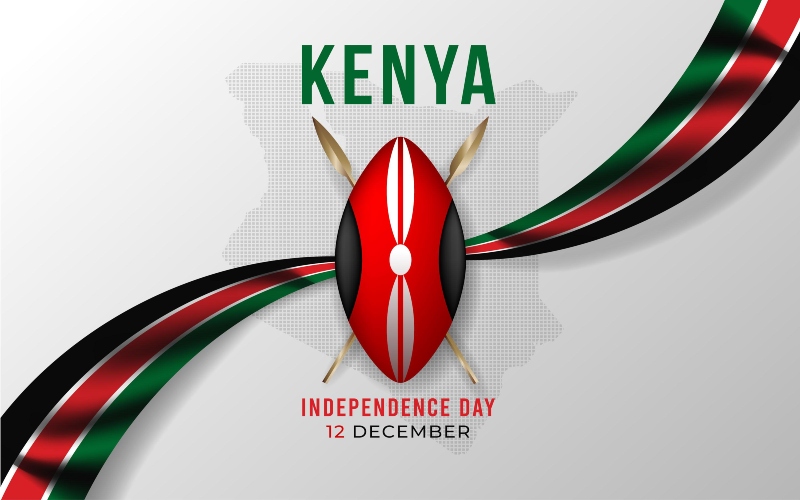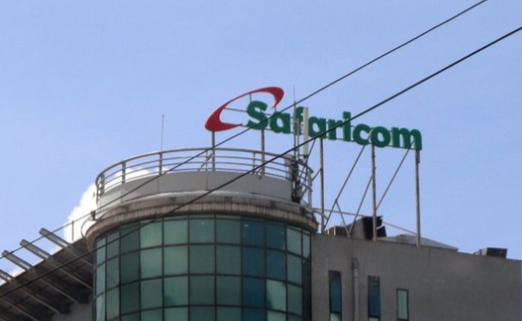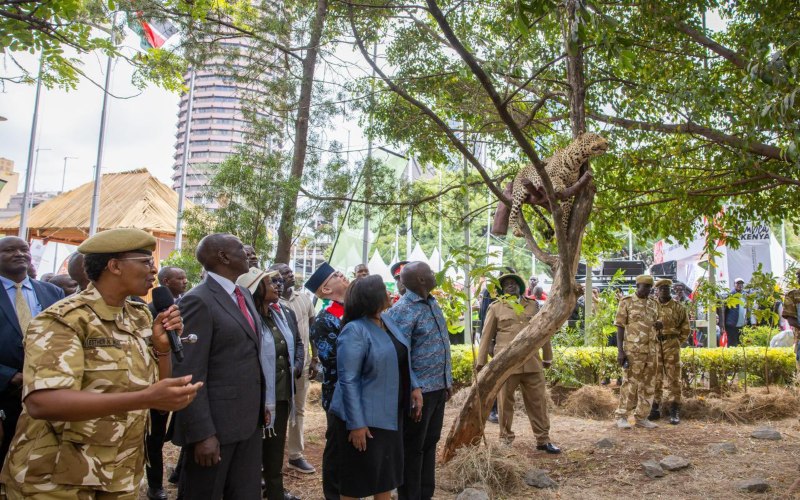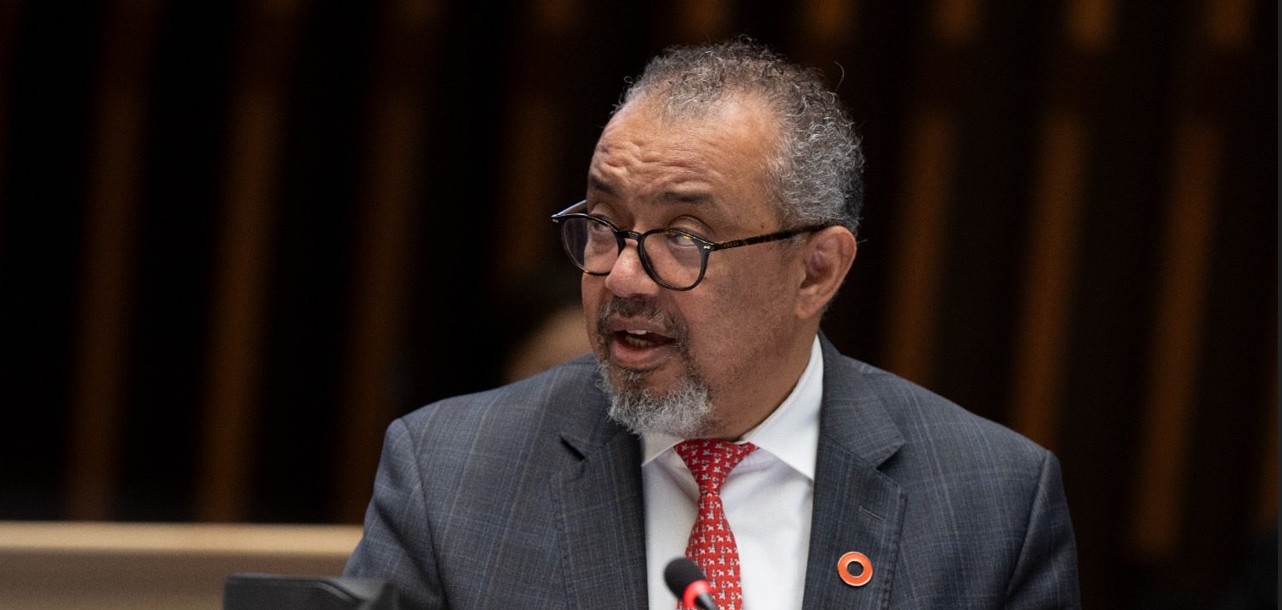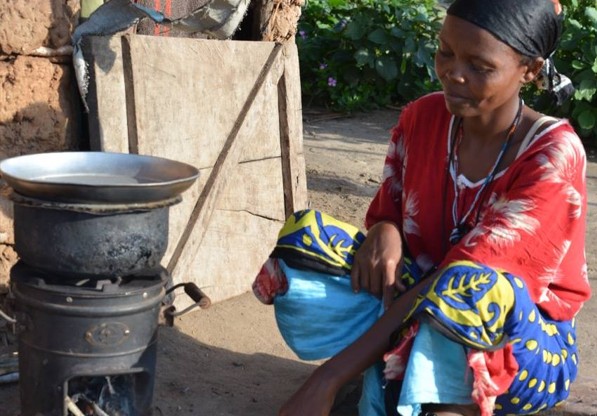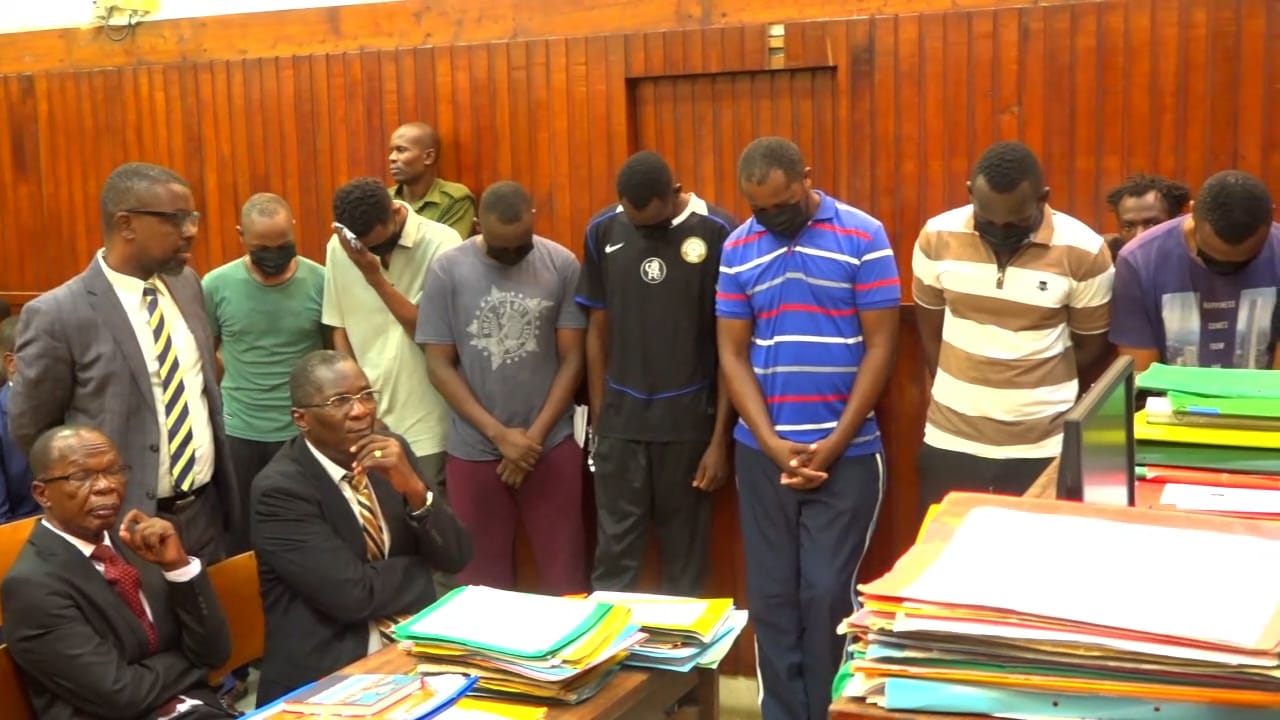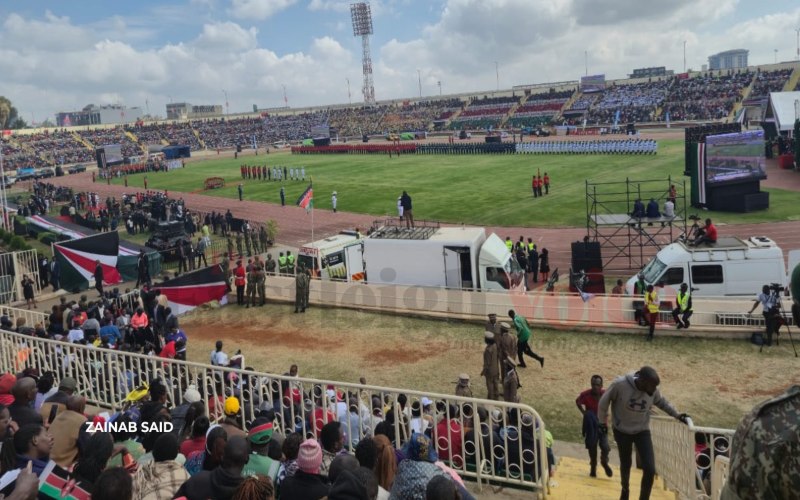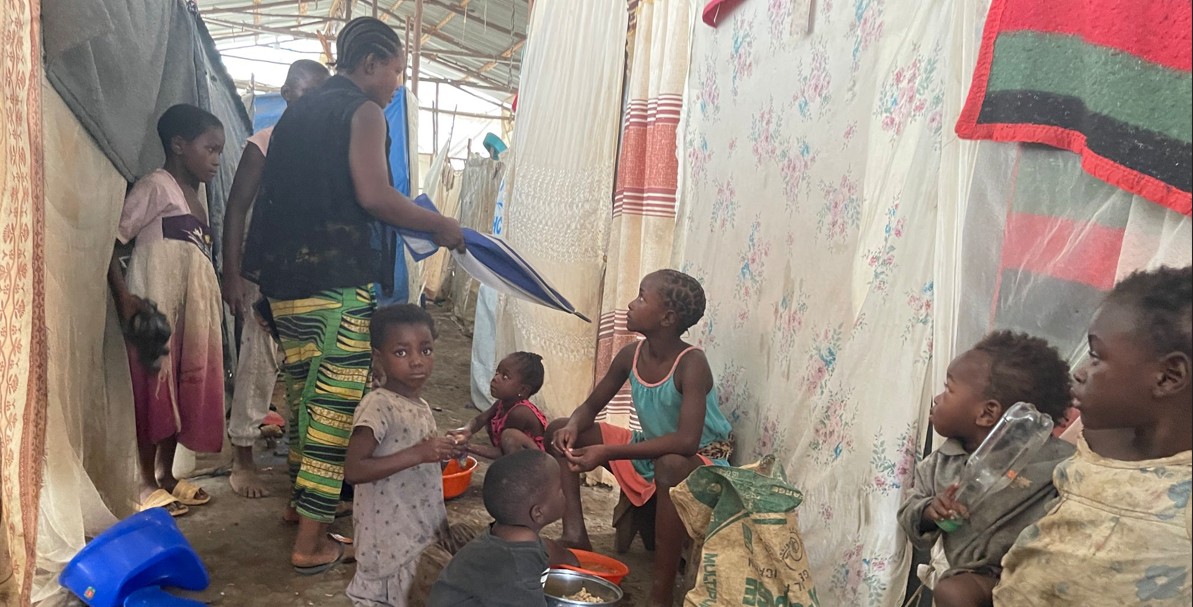MPs demand probe into KTDA over corruption, mismanagement and unfair tea bonuses

The legislators said more than 700,000 farmers have been short-changed despite their hard work in producing world-class tea.
Members of Parliament have demanded a parliamentary probe into the Kenya Tea Development Agency (KTDA) over allegations of corruption, mismanagement and unfair bonus distribution to farmers.
Addressing the press at Parliament Buildings on Wednesday, the legislators said more than 700,000 farmers have been short-changed despite their hard work in producing world-class tea.
More To Read
- Senators push KTDA to adopt scientific tea grading to end bonus payment disparities
- CS Kagwe announces policy overhaul for sugar, tea and miraa to protect farmers’ earnings
- Rift Valley tea producers clash over pricing and representation
- Tea board to probe workers paid without farms in crackdown on fraudulent earnings
- Farmers accuse KTDA of favouring Eastern regions in bonuses
- National Assembly probes tea bonus disparities after farmer complaints
The MPs drawn from the West of Rift tea-growing region are now calling for the formation of an Ad-hoc Committee to investigate KTDA’s operations, accusing the agency of entrenched corruption and poor management following the discrepancies witnessed in the 2025 tea bonus payments.
Led by Agriculture and Livestock Committee Vice Chairperson Brighton Yegon, the MPs condemned the low bonuses paid to farmers from the region, saying the disparity was unacceptable given the contribution of their counties to the country’s tea sector.
“In Kenya, tea is the second foreign exchange earner. Last year alone, tea exports were worth Sh215 billion, and 68 per cent of national tea production is from West of Rift, while 32 per cent is from East of Rift. However, tea prices from the West of Rift are dismal and worth concern,” Yegon said.
The legislators accused KTDA management of failing to rein in rising production and management costs, including inflated firewood procurement, bloated staff expenses and manipulation of weighing scales by some field clerks allegedly under the direction of factory managers.
They demanded the introduction of blind or scientific tea testing at the auction to eliminate bias and ensure fairness in quality assessment.
“In 2025, we cannot have the mouth being the sole tasting instrument of products. We must move to scientific tasting. Once this Ad-hoc Committee is formed, we will tackle the cartels once and for all,” Kitutu Masaba MP Clive Gisairo said.
In their joint press statement, the MPs further claimed that out of the 13 brokerage firms serving Kenya’s tea auction, only one originates from the West Rift despite the region producing 68 per cent of the national output.
“We demand fair representation in brokerage licensing to ensure equitable participation and regional inclusivity in tea marketing. We also demand the immediate disbandment of the tea trade association and a transparent process involving farmers,” the statement read in part.
The MPs also urged the House Business Committee to prioritise debate on the Tea Amendment Bill, which is currently at the second reading stage in the National Assembly.
Nandi Hills MP Bernard Kitur said the quality of tea from the West of Rift was globally recognised, yet farmers continued to receive the lowest bonuses.
“The tea from our region is among the best in the world, yet it receives the worst ratings at the Mombasa auction,” Kitur said.
The members who addressed the media were drawn from Bomet, Kericho, Kisii, Nandi and Nyamira Counties.
Meanwhile, Senators have also raised concerns over the growing disparity in tea bonus payments across the country. Some farmers reportedly received as much as Sh50 per kilo, while others were paid as little as Sh12 per kilo.
Nominated Senator Esther Okenyuri told the Senate that the KTDA had recently released the 2024–2025 bonus rates, noting that while farmers in the Mount Kenya region enjoyed substantial bonuses, those in Kisii and Nyamira were reeling from extremely low rates.
“Farmers in Kisii and Nyamira counties have begun destroying tea collection centres in protest and disillusionment, believing their sweat and toil are not being fairly rewarded,” Okenyuri said.
She said the disparities had triggered widespread anger and raised serious questions about KTDA’s transparency and fairness in pricing and distribution systems.
“I call on the Government, in collaboration with KTDA and relevant stakeholders, to urgently review these disparities and restore fairness, equity and farmers’ confidence,” she added.
Kisii Senator Richard Onyonka lamented that despite raising questions on tea bonuses more than two years ago, the Senate Agriculture Committee was yet to act. He criticised the reliance on traditional tasting methods, saying science should guide tea evaluation.
“Kenya still uses the tongue to taste tea, yet scientists have proposed advanced parameters like measuring iron and potassium content to assess quality more accurately,” he said.
Nandi Senator Samson Cherargei dismissed claims that tea from Mount Kenya was superior to that from Western Kenya, saying such claims were baseless and discriminatory.
“This is a great travesty and injustice against tea farmers in the country. If KTDA does not address this issue, we are going to uproot tea. Then we’ll see where those depending on tea will go—we are suffering,” Cherargei said.
He cited stark differences in bonus rates, including Sh48.10 per kilo in Kinoro (Mount Kenya) compared to Sh10 in Mudete, Sh12 in Chebut, Sh10 in Kapsara, Sh12 in Nyansiongo, Sh24 in Momul and Sh14 in Tergat.
Busia Senator Okiya Omtatah attributed the low bonuses in some areas to KTDA’s reduced presence, which he said had led to poor quality control as small-scale traders handled tea carelessly.
“What is needed is a regulatory regime so that the same discipline seen in Central Kenya is extended elsewhere. KTDA should manage the market in all regions and remove those who compromise quality,” Omtatah said.
However, Narok Senator Ledama ole Kina argued that disparities could not be uniform due to factors like soil quality, climate and management practices.
“As much as we demand equity and equality, we must be realistic. Climate conditions, marketing, and management dictate what will eventually be paid,” Ledama said.
Senate Deputy Speaker Kathuri Murungi clarified that KTDA did not deliberately favour factories from the eastern bloc, saying differences in payments stemmed from management practices.
“In some factories, they pluck four leaves and a bud, while in others, like the eastern region, they pluck two leaves and a bud,” Murungi said, adding that some factories had seen a drop from Sh30.50 to Sh12 per kilo, which management should explain.
Elgeyo Marakwet Senator William Kisang urged the Ministry of Agriculture and Livestock Development to ensure equitable bonus distribution, while Nominated Senator Joyce Korir called for urgent intervention to protect farmers’ livelihoods.
“It’s strange to see some regions getting high pay while others receive as low as Sh10 per kilo,” Korir said.
Top Stories Today
